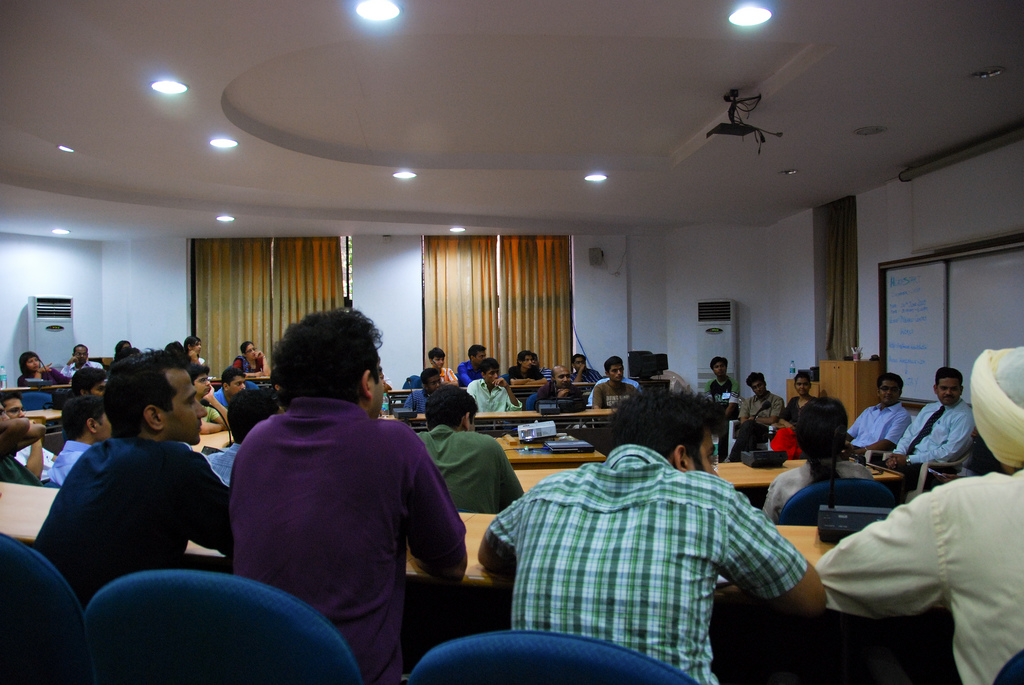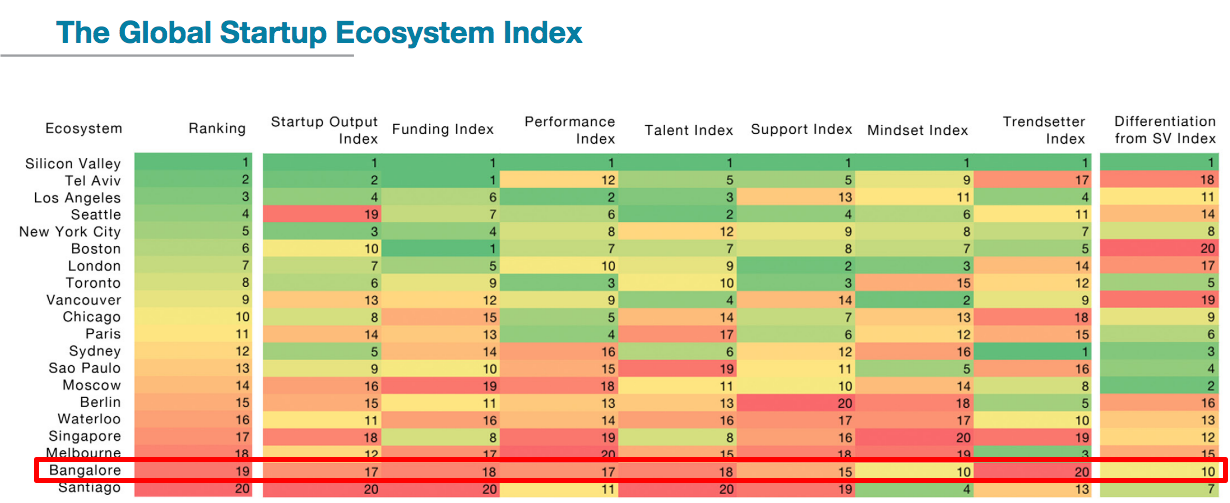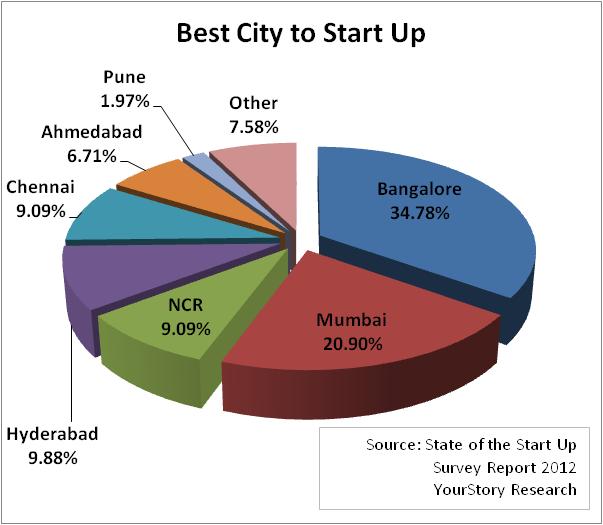(This article is the second part of a three-part series on The Startup Scene in India.)
In the first part of our series, we covered the India Startup Report released earlier this year – and included some key takeaways from the report.
What’s the current state of affairs in the Indian startup ecosystem?
There have been indications that the startup scene in India has improved much in the past few years, thanks to some innovative new startups that have come up, the rise in new startup accelerators and incubators, and increased VC/angel investors’ interest. However, it still doesn’t amount to much compared to the rest of the startup hubs, according to a study released by Startup Genome and Telefonica Digital – which took a data-oriented approach to compare and list the top 20 startup hubs across the globe. Bangalore was the only city which was included in the Top 20, but fell from an earlier position of 9th in April last year, to 19th – barely making it to the list.
The report remained optimistic about the state of affairs in India, however:
“India could well be one of the toughest countries in the world for a startup to flourish. Although it is one of the world’s fastest growing economies, India ranks 140th in the world in nominal GDP per capita. However, being one of the biggest markets on earth provides a foundation for a prospering startup scene.”
The report noted a few other things:
- Bangalore startups are 24% more likely to monetize compared to Silicon Valley startups.
- The level of education among entrepreneurs in both of the cities is the same.
- The hiring capacity of Bangalore startups is at par with that in the Silicon Valley.
- 56% of Bangalore startups are working towards building a great product, while 30% are motivated by trying to change the world.
- Low rate of technology adoption: most startups in Bangalore still rely on PHP and Java, instead of Next Gen frameworks like Ruby and Python.
- There was 74% less funding raised in Bangalore, compared to Silicon Valley.
- Bangalore startups are 67% more likely to dabble in smaller markets compared to startups in Silicon Valley.
In a 2012 YourStory research survey, “State of the Start Up“, it was found that in India, 34.78% of companies felt that Bangalore was the place to start a business, with Mumbai coming in second at 20.90%. Bangalore is deemed to be the “Tech Capital” of India, and so this comes as no surprise, since the city alone accounted for 35% of India’s 1 million IT professionals.
TECHINASIA recently came out with a few interesting statistics about the startup scene in India:
- An average of about 970 technology-product entities gets started every year in India, and only about 380 incorporate the entity as a corporation.
- The mortality rate of these entities is quite high, with over 60% pivoting or going dormant within 12 to 18 months.
- 61 percent of startups are focused on business oriented offerings – and about 39% are geared towards consumer applications such as mobile apps, social networks and e-commerce, among others.
- In 2006, there were about 43 active venture investors investing in about 73 companies each year; now there are over 80 angel investor networks, seed funds, accelerators and early stage funds, and over 153 companies get some form of institutional funding each year.
- There are three main challenges that the Indian startup ecosystem faces: the paucity of exits, the lack of a sophisticated angel investor and mentor network, and the inherent risk-averse nature of the Indian middle class.
Challenges being faced by startups in India today:
- Talent: In India, very few are ready to give up the comfort and security provided by their cushy jobs to become entrepreneurs. Hence, it becomes difficult for startups to attract and retain quality talent – since people generally do not want to quit their jobs at larger companies to go and work for a startup.
- Education: India is still lacking in a proper startup ecosystem to take full advantage of the opportunities up for grabs today. Other than a limited number of top business schools in the country, most educational institutions fail to provide the necessary support and resources for their students to indulge in free-form thinking, and take up entrepreneurship.
- Funding: Lack of funding is one of the major issues being faced by startups in India today. Add to that the lack of government support, in terms of policy approvals, bureaucratic red-tape, and slow decisions by committee mentality – this poses a big challenge for Indian startups.
- Vision: Most Indian startups lack the long-term vision and leadership to sustain and grow their business over the long run; too much emphasis is given on quick monetary returns instead of innovation – a situation that is not helped by the VCs/angel investors for these startups, either.
- Infrastructure: The infrastructure in India leaves much to be desired – poorly planned roads, inefficient logistics, quality of Internet service, issues when it comes to water and electricity, among others, all contribute adversely to the startup ecosystem in India today.
- Compensation: Indian startups, compared to their peers in other startup hubs, are generally reluctant in paying their employees in terms of industry standards; they usually blame the economy/recession as a part of these “cost-cutting measures”, while on the other hand, the employees are overworked and underappreciated. This results in substandard performance by the employees, and in turn, the company as a whole.
- Mentorship: The startup ecosystem in India faces a serious dearth of good mentoring and a support system – India does not have a large pool of successful entrepreneurs who have built successful companies from scratch, and are willing to mentor the next generation of entrepreneurs. A lot of entrepreneurs are looking for good mentors – as opposed to funding.
So, what are the steps we can take to improve the startup ecosystem in India, in the near future? We discuss this, and more, in the third and final part of the series.














